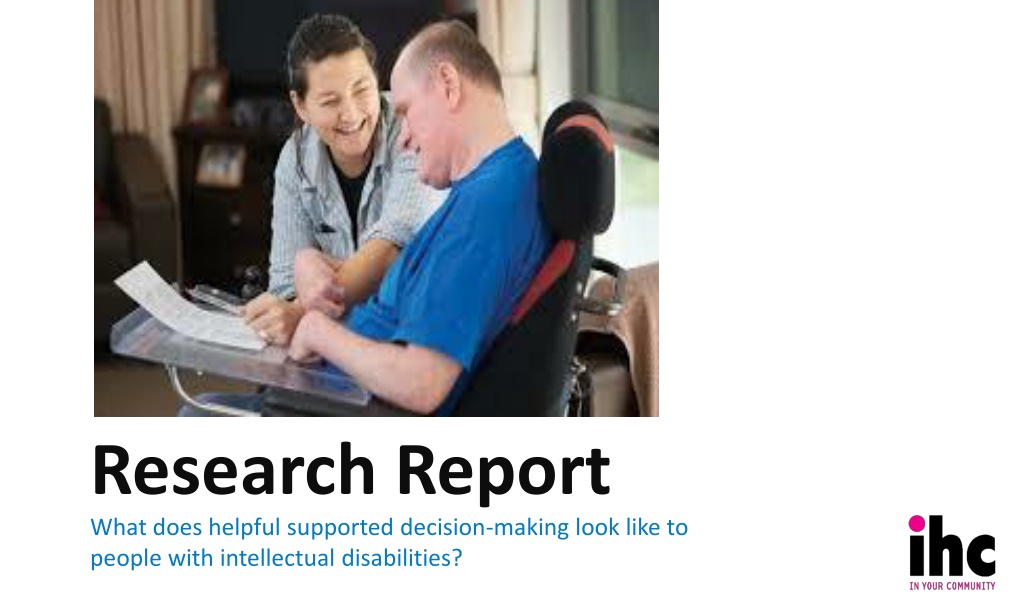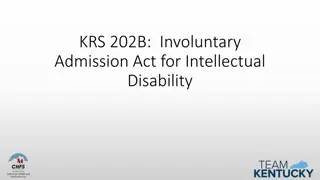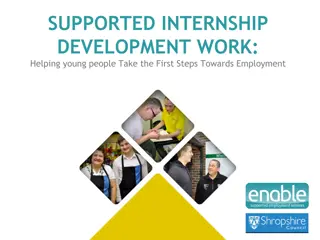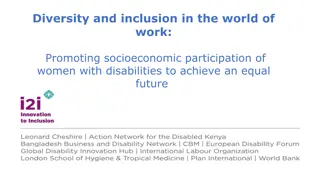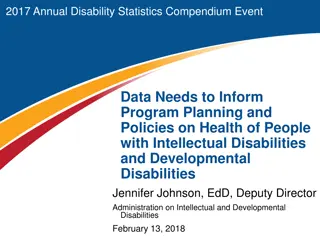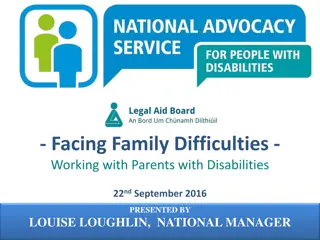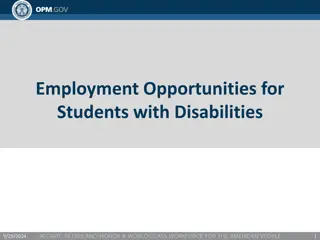Understanding Supported Decision-Making for People with Intellectual Disabilities
People with intellectual disabilities face challenges in decision-making due to factors like family influence and lack of support. Research shows that involving individuals in decision-making, with the help of supportive staff and clear communication, empowers them to make choices that align with their preferences and values, as mandated by UNCRPD Article 12.
Download Presentation

Please find below an Image/Link to download the presentation.
The content on the website is provided AS IS for your information and personal use only. It may not be sold, licensed, or shared on other websites without obtaining consent from the author. Download presentation by click this link. If you encounter any issues during the download, it is possible that the publisher has removed the file from their server.
E N D
Presentation Transcript
Research Report What does helpful supported decision-making look like to people with intellectual disabilities?
Why did we do this? UNCRPD Article 12 says that people with disability must be treated the same as other people Many people think the UNCRPD is not as important as other laws, but it is
How did we do it Talked to people with an intellectual disability We asked people how they made decisions
what did we find? Others helped them make choices and decisions for themselves Families and staff can get in the way Some disabled people believe that if their family don t agree it s the wrong choice
What helps? Staff I like them to help me. They ask me questions. Talking I choose the job myself...It s my choice. If I got any problems I talk to the boss. If I get stuck he can teach my different ideas. Doing it myself I decided what I like to do. Family Sometimes I work it out myself, but if it s hard for me I just talk to my brother. Being organised She helps me get ready. Thinking I just thought about it. It only took me a day to think about it and then, in the end, I just went and did it.
What gets in the way? Staff It was only a bit of fun, but I got told off. It just took me a couple of days to get over that. Making others happy I ll say, if it ll make you happy I will. Family I ve asked him about things time and time again and he s gone around and said, no, it can t happen.
Barrier quotes Being organised If the staff have got my money in the tin at the office and if I want anything or If I ve anything like an appointment I have to tell them about it and they put it in the diary. Staff I have to talk to their support workers to choose where to hang out with my friends. Family I ll say if it ll make you happy I will.
Whats important to me? Myself Family Staff Other people
making a decision using my will and preference I had to made a decision yesterday as I was rang by a company offering me a deal with broadband trying to tempt me with an offer of an offer of a discount on a new tv and fridge and freezer
not being able to have a say An example I have of Not being able to have a say and being able to communicate to others and having them take it seriously was Last year I got my bathroom done and my sister chose the colour for the walls and the colour of the lino without asking me if it was what I wanted
Being allowed I an example for me was during the lockdown in level 4 when I thought I could donate plasma in wellington which is a train and bus ride from my house my sister rang up my service provider and told them to tell me not to So even though I thought I was being allowed to donate plasma it felt to me that my sisters and service provider were in charge of my decision
SDM-people with high complex needs Jo Watson supported decision-making can be characterized for people with severe or profound intellectual disability in terms of the existence of two distinct but interdependent roles. Firstly, I found that the role of a person with a disability is to express preference. Secondly, I found that the role of the supporter is to respond to this expression of preference by acknowledging, interpreting and acting on it in some way
